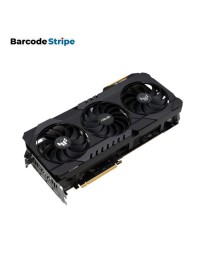
ASUS Radeon RX 6950 XT TUF GAMING OC Graphics Card
Key Features
· Boostable to 2324 MHz
· 5120 Stream Processors
· RDNA 2 Architecture
· 16GB of GDDR6 VRAM
· 16 Gb/s Memory Speed
· 256-Bit Memory Interface
· HDMI 2.1 | DisplayPort 1.4
· PCIe 4.0 Interface
· Triple Axial-Tech Fan Cooler
Based on the RDNA 2 architecture and designed to handle the graphical demands of 4K gaming as well as 1440p at high frame rates, the ASUS Radeon RX 6950 XT TUF GAMING OC Graphics Card provides an immersive gaming experience with your PC games. The GPU features 16GB of GDDR6 VRAM and a 256-bit memory interface, offering improved performance and power efficiency over the previous RDNA-based generation.

Security Policy

Shipping Policy

Return Policy

